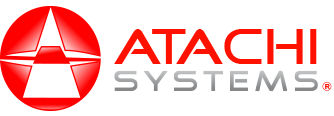Tag: Pharmaceutical manufacturing software

14 Jun How We Can Use Pharmaceutical Manufacturing Software?
Continuous Change Requires Continuous Innovation:
Today’s pharmaceutical manufacturers and distributors are witnessing a paradigm shift in consumer behavior, market dynamics, margins, and increased compliance mandates brought about by the influx of modern technology.
- Efficient business processes,
- Centralized management,
- Quick decision-making, and
- Clear analytics
have become essential for any business to grow in the modern-day scenario.
What is pharmaceutical manufacturing technology?
The Pharmaceutical Manufacturing Technology (PMT) program is a specialized chemical technology program designed to meet the needs of the pharmaceutical and related industries (cosmetics, food, plastics, custom chemicals, research centers, pilot plants, etc.)
What do pharmaceutical manufacturers do?
Pharmaceutical manufacturers manage the distribution of drug products from the point of production to the drug wholesalers and in some instances, directly to retail pharmacy chains, specialty pharmacies, hospital chains as well as some health plans.
Manufacturers in the Pharma industry are challenged with a variety of regulatory compliance and government-mandated requirements that add cost and risk to their business. They must maintain strict quality management and detailed product documentation to meet customer specifications and regulatory requirements.
What Is Pharmaceutical Software?
Pharmaceutical manufacturing software refers to an umbrella term for a variety of technology solutions used by manufacturers, raw material suppliers, and wholesalers, including drug stores and healthcare provider
Tight healthcare budgets and long product development Lifecycle makes it difficult for a pharmaceutical business to maintain a competitive edge. It is designed to handle all of the pharmaceutical industry’s unique manufacturing, distribution, and accounting needs.
What is ERP in pharma?
An ERP software for pharma manufacturing industry not only enables the consolidation and integration of pharmaceutical manufacturing processes across multiple units but also helps businesses to keep a track of sensitive operations across the organization, such as compliance, expiry management, quality, formulation, and costing, etc.
Modern ERP with embedded AI, automation, and an immersive user experience is enabling continuous innovation across the business.
Benefits of ERP Software in Pharmaceutical Manufacturing:
Pharmaceutical ERP software offers the following benefits:
- ERP systems for pharmaceutical manufacturing ensure absolute compliance with the stringent regulations
- Eliminate risk by delivering safer products of superior quality at the right price and right time
- Introduce new products to market faster and cheaper than competitors
- Real-time batch monitoring to make perfect business decisions
- ERP software for the Pharmaceutical Industry helps in maintaining formula secrecy
- Respond quickly to customer demands
- Smoothen operational process flow and enhance profits
- Enhance the quality, consistency, and speed to deliver drugs to market
- Control costs through reduced wastage, optimum material utilization, and inventory management
- Pharma ERP software offer end-to-end bi-directional traceability, from the raw material to the finished product
The selection criteria for an ERP system:
“Which ERP software will meet our business requirements?”
- Your current software doesn’t meet your business needs
- Your competitors are getting ahead of you
- You’re wasting time manually tracking and monitoring inventory manually
- Your employees don’t like the software and complain regularly
- You spend a lot to keep the software updated
- You have disorganized data, and it’s hard to get the information needed quickly
Always remember your business goals while selecting ERP software. Here are some elements to keep in mind while going through the ERP selection process.
- Business requirements
- Management support
- User support
- Budget and resources
- Technology and future scalability
- Necessary customization
- Integration with existing systems
While selecting and evaluating ERP solutions, manufacturers should talk about the
- Industry-specific functionality offered,
- Future readiness of the software,
- If the software integrates with and supports digital capabilities, and
- What are your expectations for vendors?
A strong and experienced ERP partner can help you maximize your Return on Investment (ROI).
The implementation team takes the time to understand your specific requirements and recommends the right tool or solution that will complement your business needs.
When you evaluate multiple ERP options,
- Ask about functionalities,
- Ease of use,
- If the software is compatible with developing technologies,
- What the total cost of ownership is? and
- What training is available for users?
Here are some key questions to ask ERP providers in the selection process.
- What modules do they provide?
- Do they support advanced technologies?
- Do they offer a manufacturing-specific solution?
- Is their solution customizable and can it integrate with other tools?
- Are there limitations on the number of users?
- What kinds of software support do they offer?
- What is their industry experience?
Clearly defining your selection criteria for an ERP system while embarking on your research can help ensure good communications with vendors about their software. Make sure you understand all aspects of each solution to avoid regrets later.
ERP for Pharmaceutical Distributors:
A pharmaceutical distributor, while still operating under state legislation, will not be as closely regulated as manufacturers and as there are plenty of solutions that will let you create a manufacturing record and trace product genealogy you will have a bit more room to choose the best solution for you. This means that we can now look at more agile and cloud-based ERP products, such as Dynamic365.
As the markets continue to shrink, ERP software for pharma manufacturing industry has become an essential component of business management. Faced with global competition, pharma companies need to re-engineer their processes frequently to match up and maintain their quality. Adapting a comprehensive ERP software for pharma is a key step towards scaling and growing businesses in this segment.
Stay ahead of problems and take advantage of trends through machine learning prediction, intelligent automation, and other technologies.
